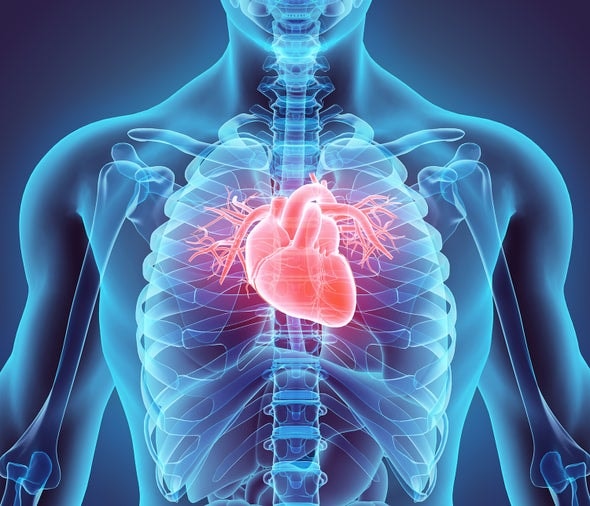1/8 of COVID-19 patients have heart inflammation, warning of cardiovascular crisis in UK
New research shows that one in eight patients hospitalized with COVID-19 will suffer heart damage, raising concerns that the pandemic could trigger a cardiovascular crisis.
Although the SARS-CoV-2 virus is primarily considered a lung infection, British scientists have found that it is also targeting the heart - the body's most important organ.
Early results from large national studies suggest thousands of people treated for COVID-19 have suffered heart damage, with experts fearing the findings could herald a surge in demand for cardiac services on an already strained National Health Service (NHS).
 |
| British people wear masks when going out in the street due to the increasing number of Omicon variant infections in the country. Photo: Anadolu |
Professor of cardiology at the University of Glasgow Colin Berry - who was involved in one such study - found that one in eight patients recovering from the virus showed signs of heart inflammation.
His team randomly analyzed 161 recovering COVID-19 patients, 90% of whom were hospitalized and one-fifth required high-level treatment or intensive care.
High incidence of myocarditis
Around one and two months after discharge, their hearts, lungs and kidneys were examined. Stressing that the study has not been peer-reviewed, Professor Berry told The Telegraph that around one in eight patients showed signs of heart inflammation, which is a high rate.
Research by Professor Berry and colleagues suggests that COVID-19-related muscle inflammation, specifically myocarditis, reduces the muscle’s ability to pump blood and causes irregular heartbeats, dizziness, chest pain and shortness of breath. They believe myocarditis can cause scarring that damages the heart valves, affecting their ability to pump blood.
Professor Berry added: “Inflammation of the heart has major health consequences. We found that physical and mental quality of life was impaired in patients with inflammation of the heart. We also saw their kidney function was impaired.”
Dr Betty Raman, a researcher at the British Heart Foundation at the University of Oxford, said a study of 500 COVID-19 patients found that those with severe cases requiring hospitalisation experienced inflammation in many different organs.
She used magnetic resonance imaging to study the brains, hearts, livers, and kidneys of study participants after they were hospitalized.
 |
| Many believe that parts of the virus that are not destroyed during the acute infection stage later remain in the patient's heart. Illustration photo - Scientific American |
Multisystemic inflammation
Although the study is not yet complete, Dr. Raman said preliminary assessments of 58 patients showed multi-organ inflammation, particularly of the heart and vascular system.
“The severity of the acute infection is a strong determinant of whether people develop heart problems,” she added. “Mild infections do not seem to cause damage. But about 10 to 15 percent of those with severe infections can develop complications.”
Many believe that parts of the virus that were not eliminated during the acute phase of infection then remain in the patient’s heart. This may be because the patient’s immune system is not strong enough to completely eliminate the virus, Raman said.
Another possibility is that the patient's immune system mistakenly identifies proteins in the body's cells as virus cells.
Dr. Raman added that her research suggests that some patients have vascular damage or heart inflammation, or both. This may explain the differences in how the SARS-CoV-2 virus affects each person with “long COVID.” The wide range of symptoms is evidence of multiple mechanisms.
The UK Office for National Statistics estimates that nearly 1.2 million people in the country suffer from symptoms of “long COVID-19”, which include heart dysfunction.
In November, the British Heart Foundation warned that more than 275,000 people were waiting for heart care and treatment in the UK. “The pressure on the NHS is now mounting and the scale of the current heart crisis is unsustainable,” said Dr Sonya Babu-Narayan, the foundation’s deputy medical director.

